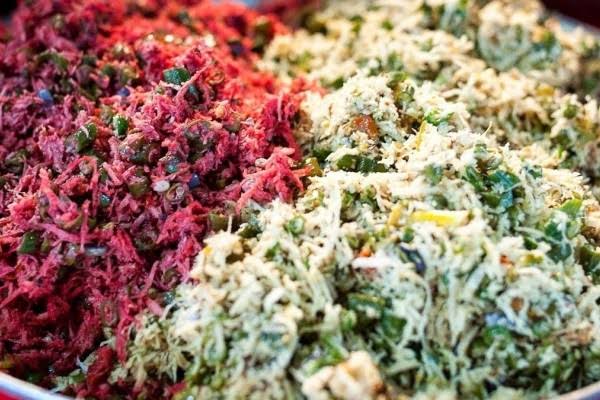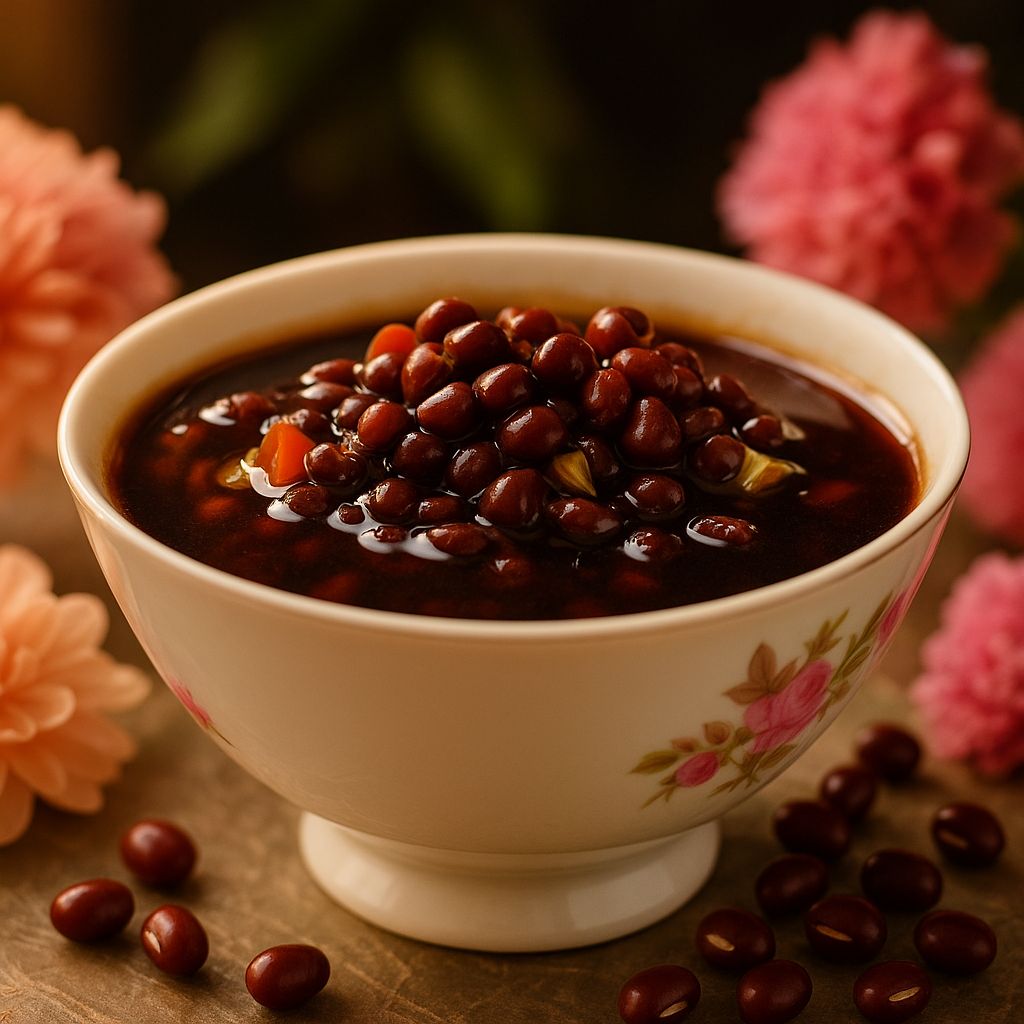Lawar is a renowned traditional Balinese dish that combines finely chopped meat, vegetables, and a rich blend of spices.
Commonly found in Balinese households and local eateries, this dish is an essential part of the island’s culinary heritage.
Lawar is typically prepared using boiled and minced meat, fresh vegetables, and a variety of seasonings such as turmeric, candlenut, shallots, garlic, and grated coconut.
In some variations, fresh animal blood is added to enhance the depth of flavor, giving lawar its signature taste.
However, due to its perishable nature, lawar is best consumed within a few hours of preparation.
The name ‘lawar’ often reflects the ingredients used in its preparation.
For instance, if pork is the primary protein, it is called ‘lawar babi,’ while a version made with jackfruit is known as ‘lawar nangka.’
Some classifications are based on color, such as ‘lawar merah’ (red lawar), which contains blood, and ‘lawar putih’ (white lawar), which omits it.
A special variety called ‘lawar padamare’ is a combination of multiple types of lawar, creating a more complex and flavorful dish.
Traditionally, lawar is served as a side dish alongside rice and other Balinese delicacies.
For those who adhere to halal dietary restrictions, there are modified versions of lawar that do not include pork or blood.
Instead, beef or chicken is used as a substitute, ensuring that the dish remains accessible to a broader range of people.
In this variation, the rich blend of spices and coconut remains unchanged, preserving its authentic Balinese essence.
Beyond its culinary appeal, lawar holds deep cultural significance in Balinese society.
It symbolizes balance and harmony, key principles in Balinese philosophy. As a staple dish in traditional ceremonies and religious festivities, lawar represents communal unity and the rich heritage of Bali.
Despite misconceptions that all lawar contains pork and blood, halal versions demonstrate the dish’s adaptability.
Exploring lawar is not just about savoring its exquisite taste but also understanding its profound cultural roots.
Whether prepared at home or enjoyed in a local warung, lawar remains a testament to Bali’s rich culinary and spiritual traditions. (BT)




